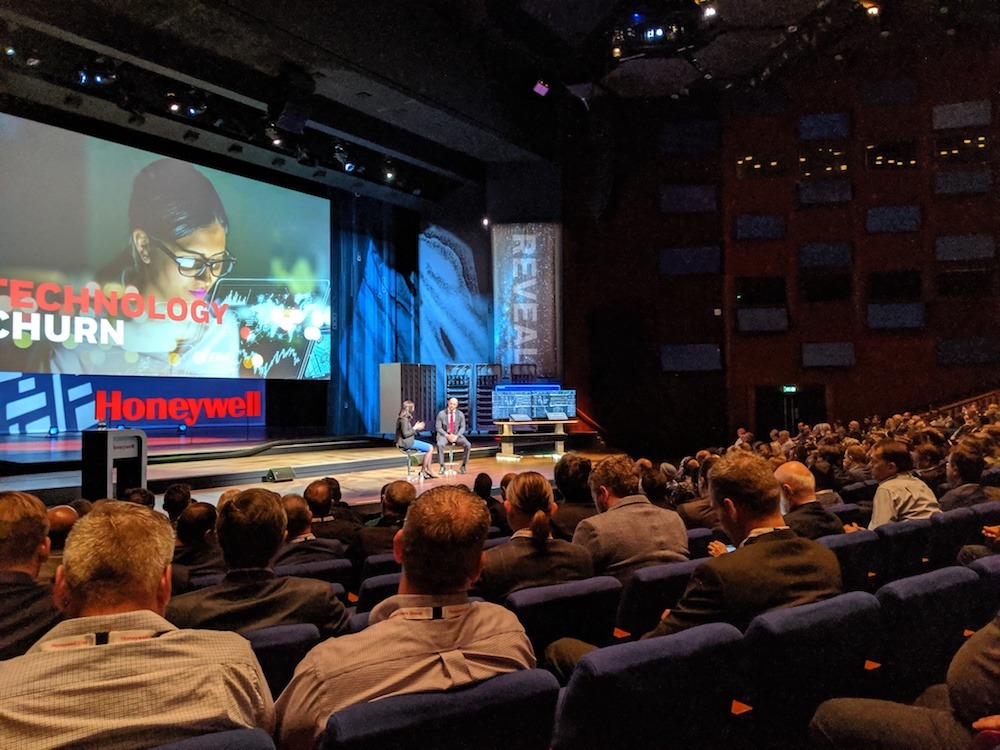Speaking at a conference run by the firm, global sales VP Ben Huggins believes legacy IT needs to be swapped for modern tech to avoid issues in the future

Global sales VP Ben Huggins was speaking at Honeywell's User Group conference in The Netherlands
Legacy IT infrastructure currently used by many companies will not be able to react to potential problems of the future, according to an engineering company executive.
Ben Huggins, vice-president of global sales at Honeywell, believes it’s of key importance for businesses to adapt to more modern technology in order to meet the challenges of the future.
He was speaking at the firm’s European Middle-East and Asia’s Users Group conference at The Hague World Forum in the Netherlands.
Huggins said: “The problems that our customers are going to experience in the future tomorrow won’t be changed or improved by the technology of yesterday, or even today.
“You really have to recognise that the problems of tomorrow have to be solved by the technology of tomorrow.
“I think the companies that fail to adapt, that fail to move forward, even though they might be relevant today, won’t be relevant in a few years.”
Business must leverage how the new workforce learns
An ageing workforce is causing concerns for many industries, with the prospect of retiring employees taking valuable knowledge and experience with them.
To help train the next-generation workforce, Huggins says businesses need to employ learning methods, such as YouTube, that young people readily access to develop their skills.
He said: “Another common problem is, quite frankly, we have an ageing workforce. And, as we bring new workers into our plants and into our environment, we have to recognise that they’re very accustomed to learning using current technology.

“We need to take advantage of that. And so Honeywell is doing competency programmes and other types of technology development that’s teaching a new workforce to learn more effectively and faster to get them prepared for when the ageing workforce retires.
“The fact is, the responsibility is on us. The responsibility is on Honeywell, it’s on our users and our customers to develop those platforms so that the new workers can learn and be effective.”
Tackling obsolete technology by using the most up-to-date equipment
Another area covered, was tackling the problem of obsolete technology used by businesses.
Huggins believes the only way to tackle the problems faced by companies today, is by using the technology of today.
“Obsolescence management really is about creating solutions based on the technology that’s based on technology available today,” explained Huggins.

“You can replace like for like, but if you do that, you don’t necessarily realise the return on investment of those projects.
“In my opinion, optimisation is really about creating solutions for today’s problem using today’s technology.
“At Honeywell and the investments we’ve made, we can really reduce the overall penalty of obsolescence with the innovative migration solutions that we have.”


